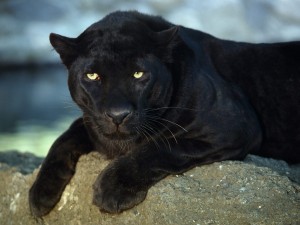News
Latest Lion Aid News
The dark side of South Africa's trade
Friday 20th July 2012

Meanwhile, the illegal wildlife trade flourishes, and involves such disparate species as sharks, sea cucumbers, corals, rhinos, elephants and of course lions. I have been blogging a lot about the growing trade of live lions and tigers, rhino parts, lion bones etc all emanating from South Africa. Recently, there was an article in the UK Sunday Times – Irish Edition about white lion cubs being imported to the Irish Tayto Theme Park. The very professional reporter, John Mooney, contacted the South African exporters, Wildlife Assignments International. Their spokesman Charles van Niekerk declined to reveal the origin of the lion cubs, but said they were not associated with canned hunting breeders. Van Niekerk said there were “confidentiality” agreements with the breeders, so he could not reveal their names. This sent a few alarm bells ringing here at LionAid. So we decided to do a little bit of an internet search about Wildlife Assignments International. On their website, they say they are closely associated with Catchco Africa, a company involved with wildlife capture and much more. Catchco says “Due to all the high profile work carried out by Catchco Africa, the company has often been in the centre of media coverage across the country and has also featured in many wildlife documentaries for Animal Planet and the Discovery Channel as well as local Documentaries too.” But Catchco is/was run by veterinarian Douw Grobler, past head of Game Capture Unit, Kruger National Park. In 2001, Grobler was fired by Kruger for the illegal sale of animals from Kruger’s disease-free buffalo breeding project. More recently, Dr Grobler has been charged with allegedly selling scheduled veterinary drugs to facilitate immobilization of rhinos by poachers. Grobler’s trial has been long delayed, but seems to be coming up in the next few weeks. Ooops! Any wonder why van Niekerk did not want to disclose his sources? And what are Animal Planet and Discovery Channel doing being associated with Catchco? The Global White Lion Trust also alerted us to a recent import by Pakistan of two other white lions. The importing companies, Osaka Traders and Three B Enterprise have cases pending against them in Pakistan for using fake permits and more. It is noted that Thai Airways were involved in shipping the lions. Perhaps the airlines could take a better role in ensuring that their shipments of wildlife are handled with better documentation? And as these airlines transport very many tourists, that they should be better aware of conservation issues? Are Wildlife Assignments International involved with the South African Predator Association, a club of predator breeders who supply the canned hunting and export market? On their website, the Association say they will:
Conservation? Positive image? One does wonder… This Association provides inbred white lion cubs to theme parks and provides the trophy hunting industry. They have a “for sale” section of their site to show what breeders (with telephone numbers for convenience) can supply in terms of canned trophy lion males and females with pictures supplied. Price? Anywhere between £23,300 to £10,100. It’s all right there in black and white and technicolour on the web, and under South African regulations it is all legal. Is the captive breeding trade in lions, their bones, live tigers and their hunting trophies, live rhinos and their trophies by South Africa moral? No, as it stimulates a market that rewards poaching as a cheaper option and awards theme parks animals that do not belong there. Shut down the shady traders and wildlife conservation will make progress. As a final remark, South Africa has not come under the international radar in terms of supplying live and trophy tigers. Tiger breeding farms in China are well known and condemned. Perhaps South Africa could be equally censured? Picture Credit: www.kewlwallpapers.com Tags: White lions, South Africa, Illegal wildlife trade, Categories: Illegal Wildlife Trade |
Posted by Pieter Kat at 16:12
No comments have been posted yet.
Add a new comment
Existing user
New user sign up



